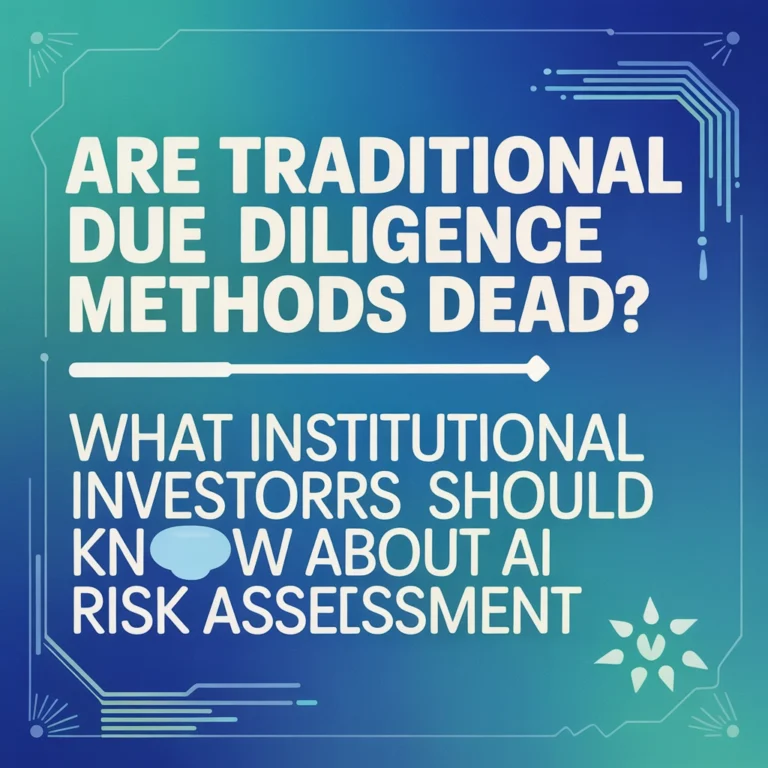The Ultimate Guide to Private Market Investments: Everything Wealthy Europeans Need to Succeed in 2025

Private markets in Europe are having a moment. After navigating the choppy waters of post-pandemic uncertainty, 2025 is shaping up to be a defining year for sophisticated investors looking to diversify beyond traditional public markets. If you're sitting on significant wealth and wondering how to make your money work harder, this guide will walk you through everything you need to know about European private market opportunities.
The Recovery Is Real (And The Numbers Prove It)
Let's start with the good news: European private equity deal values surged by 35% year-over-year, with deal counts climbing 18%. We're looking at the third-best year on record for European PE activity, with total deal volume hitting €554.4 billion in 2024 – a massive 26.9% jump from 2023.
But here's what makes this recovery particularly interesting: it's not just about throwing money at mega-deals anymore. The market has smartly pivoted toward lower and mid-market transactions, where valuations make more sense and opportunities are more plentiful. This shift creates perfect entry points for wealthy investors who want exposure to high-quality assets without paying bubble-era premiums.

The first half of 2025 maintained momentum with €268.3 billion in deal activity, though we did see some brief volatility when US trade tariff announcements in April caused European secondary loan prices to dip. The market bounced back by June, proving its resilience – but also reminding us why diversification matters.
Where The Smart Money Is Going
Technology, healthcare, and consumer staples are dominating deal flow, and for good reason. These sectors have proven their ability to weather economic storms while delivering sustainable growth. What's particularly compelling is the rise of add-on acquisitions, which made up 54.8% of total deals by count in Q2 2025.
This trend is creating opportunities to invest alongside private equity firms building market-leading platforms through strategic consolidation. Instead of betting on single companies, you're getting exposure to sector leaders with multiple competitive advantages.
Strategic Allocation: Building Your Private Markets Portfolio
Here's where things get practical. A sophisticated European private markets allocation should start with your foundation – regulated savings accounts for liquidity needs. But the real wealth building happens when you move beyond traditional investments.
Real Estate Investment Companies (SCPIs) remain a cornerstone strategy, offering professional management and diversification across European commercial real estate markets. These vehicles provide steady income streams while benefiting from Europe's robust property markets.
For the environmentally conscious (and profit-minded), carbon quotas and green technology investments are delivering attractive returns while supporting the ecological transition. The regulatory tailwinds here are massive, making this a rare case where doing good and doing well truly align.

Tax Optimization: Keep More Of What You Earn
European investors have access to some of the world's most sophisticated tax-advantaged investment structures. Plan d'Épargne en Actions (PEA) and life insurance products can dramatically improve your after-tax returns from private market investments.
These wrappers aren't just about tax deferral – they're about building long-term wealth efficiently. A properly structured PEA can shelter decades of private market gains, while life insurance products offer additional estate planning benefits that become crucial as wealth grows.
The key is working with advisors who understand both the investment opportunities and the tax implications. Too many wealthy investors focus solely on gross returns while leaving significant money on the table through poor tax planning.
What Makes European Markets Different (And Better)
Europe is increasingly positioning itself as a competitive alternative to US markets, and the advantages are compelling. European markets benefit from:
- Lower leverage levels across portfolio companies
- More favorable regulatory environment for private investments
- Active government stimulus supporting business growth
- Stronger fundraising capabilities with massive dry powder reserves
This positioning creates a unique opportunity for European investors to access high-quality assets while diversifying away from US market concentration risks. The bid-ask spread between buyers and sellers is narrowing as borrowing costs decline and company valuations improve, setting up conditions for increased M&A activity.

Risk Management: What Could Go Wrong (And How To Prepare)
Despite the positive outlook, sophisticated investors must acknowledge ongoing risks. Geopolitical tensions and tariff-related economic impacts could slow the pace of recovery. The interconnected nature of global markets means that shocks in one region quickly ripple across others.
However, the European private market's resilience during recent volatility is encouraging. Primary and secondary loan issuance rebounded quickly from temporary setbacks, and most portfolio companies have maintained stability despite higher debt costs.
The key is building portfolios that can weather various scenarios while maintaining the flexibility to capitalize on opportunities as they arise.
The AI Advantage: How Technology Is Changing The Game
Traditional risk models and investment approaches are being challenged by AI-powered alternatives that can process vast amounts of market data in real-time. Sophisticated investment management firms are increasingly using artificial intelligence to identify opportunities, optimize portfolios, and manage risks in ways that weren't possible even five years ago.
This technological revolution means that choosing the right investment partner is more crucial than ever. Firms that leverage AI and advanced analytics can provide insights and execution capabilities that traditional approaches simply can't match.
Implementation: Your Roadmap To Success
Success in private markets requires patience, discipline, and the right partnerships. Here's your action plan:
Start with your foundation: Ensure adequate liquidity through regulated savings accounts before committing to illiquid investments.
Build relationships: The best private market opportunities often come through established relationships with fund managers and investment firms. This isn't a DIY asset class.
Diversify thoughtfully: Spread investments across sectors, geographies, and vintage years. Don't put all your eggs in one fund or strategy.
Plan for the long term: Private market investments typically require 5-10 year commitments. Make sure you're comfortable with this timeline and have structured your overall portfolio accordingly.
Stay informed: Market conditions can change rapidly. Work with advisors who monitor opportunities and can adjust strategies as conditions evolve.

Looking Ahead: Why 2025 Is Just The Beginning
The outlook for European private markets remains positive for later 2025 and beyond. Large coffers of dry powder are waiting to be deployed, and improving economic conditions are creating favorable conditions for deal-making.
European private equity firms have learned valuable lessons from the challenging post-pandemic period and are approaching investments with greater operational focus and financial discipline. This creates opportunities for investors to partner with managers who have been tested by adversity and emerged stronger.
The Bottom Line
European private markets in 2025 offer compelling opportunities for wealthy investors who approach them with appropriate sophistication and long-term commitment. The combination of market recovery, attractive valuations, favorable regulatory environment, and technological innovation creates conditions that sophisticated investors can capitalize on.
The key is avoiding emotional reactions to short-term volatility while maintaining the discipline to build diversified portfolios over time. Wealthy Europeans are uniquely positioned to access exclusive opportunities, but success requires working with the right partners and maintaining a strategic, long-term perspective.
As the European private markets continue evolving, investors who combine patience with sophistication will find themselves well-positioned to capitalize on one of the most dynamic asset classes available today.






